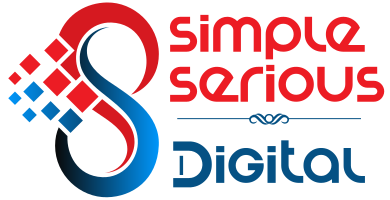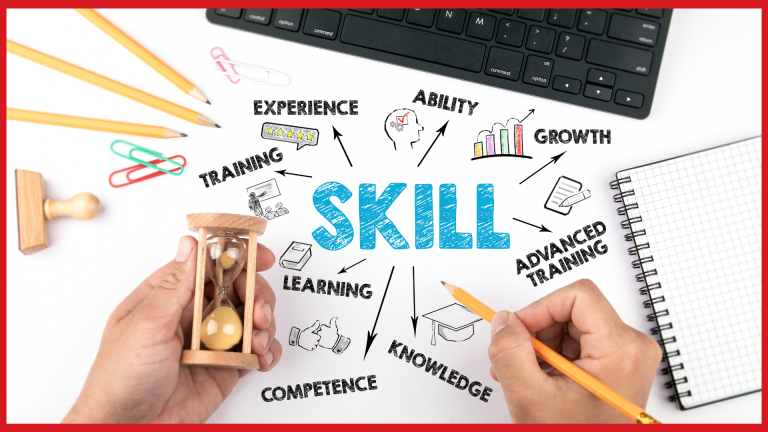In a thought-provoking YouTube video, Alison Palmer, the Head of HR at Dariel Software, sheds light on the critical skills shortage across various sectors in South Africa, especially in IT and Finance.

I thought of sharing this insightful video which sheds light on a critical issue and offers actionable steps for bridging the skills gap. It encourages individuals, the private sector, and education institutions to collaborate in empowering the youth for success in the digital age.
Alison Palmer is a seasoned professional with extensive experience in HR and talent development. As the Head of HR at Dariel Software, she brings a unique perspective on the crucial role digital literacy plays in today’s workforce. Her insights and passion for equipping youth with the right skills make her a credible voice on the topic.
The video discusses the challenges faced by the youth, the importance of digital literacy, and the role the private sector can play in shaping a brighter future. Alison emphasizes the need for curiosity-driven learning, the significance of basic IT skills, and the potential for the private sector to provide resources and opportunities for growth. She encourages youngsters to embrace the ever-evolving landscape of technology and take advantage of available online resources and courses. The conversation is a call to action, urging collaboration between education, the private sector, and individuals to bridge the skills gap and empower the next generation for success
Key Takeaways:
- Skills Shortage Crisis: South Africa faces a significant skills shortage across various sectors, with a particular emphasis on IT and Finance.
- Quality of Education Disparities: Disparities in the quality of education provided to young people contribute to the skills gap, hindering their ability to excel in the digital age.
- Challenges in Education Access: Issues like lack of funding, limited access to resources, and even basic services like electricity hamper the educational journey for many youth.
- Private Sector’s Role: The private sector has a vital role to play in addressing the skills shortage, including donating computers, offering internet connectivity, organizing career days, and providing financial support.
- Cultivating Curiosity: Encouraging curiosity-driven learning from a young age can lead to a natural interest in various fields, including IT. A curious mindset fosters critical thinking and problem-solving skills.
Elaboration on Takeaways:
- The video underscores the pressing skills shortage issue, emphasizing its impact on different sectors. Alison’s insights highlight the urgency of addressing this issue.
- Disparities in education quality hinder skill development. This realization calls for educational reforms that provide equal opportunities and quality education to all.
- The challenges in accessing education due to lack of resources and basic services like electricity emphasize the need for systemic changes and the involvement of multiple stakeholders.
- The private sector’s potential to make a difference cannot be overstated. Their support can range from donating essential resources to creating awareness and offering financial aid.
- Curiosity-driven learning is a key to success in any industry. Alison’s reminiscence about a software engineer’s curiosity exemplifies the mindset required to thrive in a rapidly changing digital landscape.
As an expert in digital literacy, I believe that fostering a culture of continuous learning is paramount. Encourage young learners to explore new fields, embrace online resources, and develop foundational IT skills. The collaboration between the private sector and education institutions can create a more accessible and inclusive learning environment. By cultivating curiosity, adaptability, and critical thinking, the youth can prepare themselves for a dynamic future.
FAQ:
- Is the skills shortage a widespread issue? Yes, the skills shortage is prevalent across various sectors in South Africa, with IT and Finance facing significant gaps.
- How can the private sector contribute? The private sector can offer resources like computers, internet connectivity, and financial aid. They can also organize events to raise awareness about various career paths.
- Why is curiosity important in learning? Curiosity drives a thirst for knowledge, leading to improved critical thinking and problem-solving skills, qualities essential in the digital era.
- Can adults also bridge the skills gap? Absolutely, it’s never too late to learn. Online courses, libraries, and community resources can help adults acquire essential skills and thrive in the digital landscape.
- What are the benefits of IT skills in various industries? IT skills are fundamental in almost every industry today. They enable problem-solving, innovation, and efficient communication, enhancing productivity and competitiveness.

We invite organizations passionate about empowering the youth and fostering digital literacy to join hands in partnership with us. By pooling resources, expertise, and networks, we can create a more comprehensive and impactful approach. Through partnerships, we can:
- Provide Resources: Donating computers, offering internet connectivity, and supplying educational materials can directly address the lack of resources many young learners face.
- Raise Awareness: Organizing career days, workshops, and seminars can introduce youth to various career paths, inspiring them to pursue digital literacy.
- Offer Financial Support: Providing scholarships, bursaries, and financial aid can help overcome barriers and enable deserving students to access quality education.
Your Impact Matters
Your organization’s involvement will not only contribute to a more skilled workforce but also uplift communities and drive social change. Together, we can create a ripple effect that empowers youth, transforms lives, and fuels innovation.
Getting Involved
Are you ready to be part of the solution? Contact us [email protected] and let’s discuss how your organization’s expertise and resources can synergize with our mission to bridge the digital skills gap and pave the way for a brighter future.



